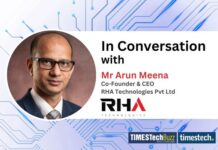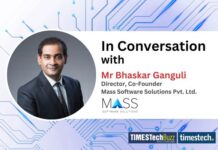In an exclusive interview with TimesTech, Dr. John W. Mitchell, President and Chief Executive Officer of IPC, delves into the intricate landscape of the electronics industry. With insights into emerging microtrends, technological convergence, sustainability practices, data security, IoT evolution, and the future of miniaturization, Dr. Mitchell provides a comprehensive view of how electronics are transforming our world. Join us as we explore the dynamic forces shaping the future of technology with one of the industry’s foremost thought leaders.
Read the full interview here:
TimesTech: What are some of the emerging micro trends in the electronics industry that you believe will have a significant impact on the future of technology?
Mr. John: Key microtrends impacting the electronics industry include: computers in everything, connected/smart everything, datafication, artificial intelligence, extended reality, digital trust, 3D printing, gene editing and synthetic biology, nanotechnology and materials science, new energy solutions, and 5G/6G cellular technology. If I had to pick my top microtrends that are shaping the future of electronics, it would be computers in everything, connected/smart everything, datafication and 5G/6G cellular technology.
TimesTech: How do you see the convergence of various technologies influencing the design and development of electronic devices?
Mr. John: We are already seeing the integration of AI and automation leading to better robotics systems. Similarly, design, analytics, and AI are coming together to provide new printed circuit board development with additive manufacturing.
TimesTech: With the growing emphasis on sustainability, what are some eco-friendly practices or trends that are gaining traction in the electronics manufacturing process?
Mr. John: Circularity is one of several sustainability practices that influences electronics manufacturers. Designing and manufacturing electronics to minimize impacts on resources, emissions, and waste means we are talking more about recyclability and recycled content, reusability and remanufacturing. Policy and technology drivers change how and what we design and use, how we make our products and what we do with the materials across the product’s life cycle, and how we thoughtfully extend a product’s expected life for continued use and value.
TimesTech: As electronics become more integrated into everyday life, how is IPC addressing the challenges and opportunities related to data privacy and security?
Mr. John: IPC provide forums for companies to work together to create standards to adhere to; education to train to; and advocacy to influence with. As the industry focus on various aspects that are important to it, IPC leverages standards, education, and advocacy to accomplish the goals of the electronics industry.
TimesTech: The Internet of Things (IoT) has been a prominent tech concept for years. Could you share some unique ways you envision IoT applications evolving in the near future?
Mr. John: When I think of IoT for the electronics industry, I envision the Factory of the Future. These factories have machines that communicate readily with each other using new and advanced protocols like the Connected Factory exchange (CFX) to gather relevant data. This data is then reviewed and leveraged for efficiency, automation, ordering, etc. by using data analysis and AI tools. The electronics workforce will continue to develop higher level skills that will move from hands-on assembly and test to programming machines at the lowest level and advanced capabilities in analytics going on up into design for sustainability and automation.
TimesTech: Miniaturization has been a constant trend in electronics. What new breakthroughs or possibilities are on the horizon with regard to shrinking electronic components?
Mr. John: Additive electronics and advanced packaging advances are helping make more capable smaller electronics.















